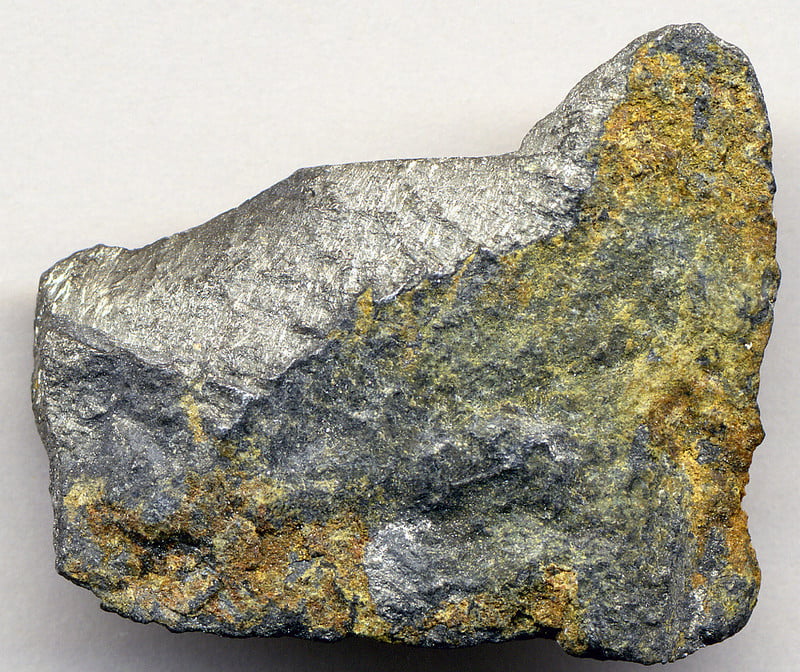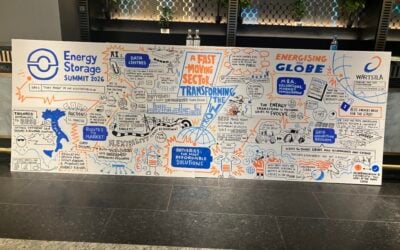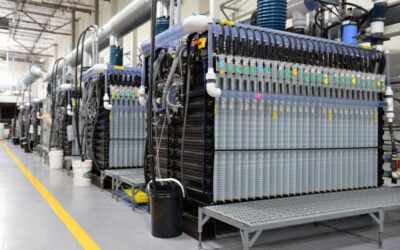
Liquid metal battery storage from tech startup Ambri will be demonstrated by US utility company Xcel Energy in Colorado.
Ambri, a spinout from MIT’s labs, was founded in 2010 and has developed its high temperature battery as a potential low cost, long-duration energy storage resource. It raised US$144 million in an investment round last year, at the same time securing a supply deal for antimony, a key ingredient of its battery’s cathode.
The company claims that its battery avoids many of the degradation mechanisms that impact lithium-ion batteries. It is also claimed to be free from the risk of thermal runaway and recently received its UL 1973 safety certification.
Xcel Energy, which serves close to four million customers in eight US states including Colorado, New Mexico, Texas and various Upper Midwestern states, will demonstrate the technology at Aurora, Colorado’s Solar Technology Acceleration Center (SolarTAC).
Try Premium for just $1
- Full premium access for the first month at only $1
- Converts to an annual rate after 30 days unless cancelled
- Cancel anytime during the trial period
Premium Benefits
- Expert industry analysis and interviews
- Digital access to PV Tech Power journal
- Exclusive event discounts
Or get the full Premium subscription right away
Or continue reading this article for free
The project will last a year at the centre, which is run by non-profit research group MRIGlobal, testing technologies in a real-world, grid-connected environment, while it also has microgrid and grid edge research capabilities too.
In 2018, the utility set itself a target date of 2050 to provide all customers with net zero emissions electricity, heat and transport. On the way there, it aims to reach 80% CO2 emissions reductions from 2005 levels by 2030 and retire all of its coal power plants by 2034.
Its clean energy plan for Colorado includes deploying 2,400MW of wind, 1,600MW of large-scale solar PV and 1,200MW of distributed solar. Alongside that it will seek to deploy 400MW of battery storage and 1,300MW of dispatchable resources.
The company has similar renewable energy ambitions for the Upper Midwest and southwestern parts of its service area. Overall, it wants to more than double its proportion of renewable generation from 36% in 2021 to 67% by 2030, while in its 2021 sustainability report, it identifies that long-duration energy storage is among the dispatchable low carbon energy technologies that will enable it to make the transition to fully emissions-free by 2050.
“Partnering with a progressive and innovative utility such as Xcel Energy is an exciting opportunity for Ambri as their clean energy vision is directly aligned with our mission to leave the planet a better place for future generations,” Ambri CCO Adam Briggs said.
It’s the latest long-duration, non-lithium battery technology to be trialled by a utility in the US. Other recent examples include Portland General Electric’s installation of an iron electrolyte flow battery system made by ESS Inc in Oregon, Duke Energy’s commitment to testing Honeywell’s new flow battery next year and Form Energy’s forthcoming pilot deployment of a 1MW iron-air battery with up to 150 hours storage duration with Minnesota utility Great River Energy.
“We look forward to learning what their technology can accomplish in a range of extreme environmental conditions as we look to build out the long-duration energy storage that will help us reach our carbon reduction goals,” Xcel Energy chief planning officer and senior VP for system strategy Alice Jackson said of the Ambri demonstration.
Ambri’s tech was picked out for use in longer-duration energy storage projects by NEC ES in 2019, shortly before that company pulled out of the industry. More recently, the company announced a deal two months ago to deploy 300MW/1,400MWh of its batteries with South African renewable energy power producer Earth & Wind at a combined solar PV and wind power plant in the country’s Eastern Cape region.





